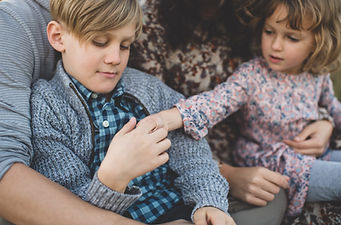
Signs & Symptoms
Signs & Symptoms of Brian Tumours
As with most cancers, the symptoms of brain tumours are diffuse and confusing, and are often initially attributed to viruses, neurological problems, or even emotional problems. Most parents of children diagnosed with brain tumours report variations of the symptoms listed on the warning signs page, symptoms that had no apparent cause and may have lasted for several months before the paediatricians ordered the tests which diagnosed a brain tumour
Brain tumours account for 15% of paediatric cancers. Since the brain controls learning, memory, senses (hearing, visual, smell, taste, touch), emotions, muscles, organs, and blood vessels, the presentation of symptoms varies accordingly.
Reading about brain tumours can be particularly daunting for the parent of a recently diagnosed child. The nomenclature of brain cancers is difficult for the layman to master, since the tumours are described in terms with which most of us do not use in everyday conversation. Luckily, at least four sites (listed below) currently exist on the Internet which describe the many brain cancers. These sites use tables, diagrams, and pictures to depict the different paediatric cancers, as well as passages of detailed text. They are well written and are easy to understand because they fully explain each new medical term which they introduce.

General Symptoms
-
Paediatric Brain Tumour Handbook supplied by the Brain Tumour Foundation of Canada, follow the information link to find the "Patient Handbook".
-
Paediatric brain tumour descriptions at the Virtual Trial site.
-
The different types of brain tumours on Oncolink (not just childhood).
-
A description of all brain tumours on the Brain Tumour Society (BT) site; extremely organized layout.
These symptoms apply equally to the individual as they do to the child.
-
A seizure not related to high fever
-
Staring, repetitive automatic movements
-
Persistent vomiting without any known cause (projectile vomiting), nausea
-
Progressive weakness or clumsiness; neck tilt, squint
-
Walking, balance problems
-
Precocious puberty; growth retardation
-
Sleep apnoea
-
Vision problems
-
Headache, especially that wakes the child up at night or is early in the morning
-
Pain, especially back pain, which should be taken seriously in a child
-
Changes in personality, irritability, listlessness
*If your child is a baby, the only symptom may be a head that is growing too fast. Because an infant skull can grow to accommodate the extra volume of a tumour, a baby may present with an enlarged head.
Symptoms in relation to location
Some of these symptoms are listed below, grouped under the different parts of the brain.
They are included only as a guide - the exact diagnosis can only be made by a doctor and confirmed by tests.
-
Frontal lobe tumours: Changes in personality and intellect. Unco-ordinated walk or weakness of one side of the body. Loss of smell, occasional speech difficulties.
-
Parietal lobe: Difficulty in expressing or understanding words and problems with writing or reading. Difficulty in organising certain movements. Numbness or weakness on one side of the body.
-
Occipital lobe: Loss of vision on one side. The person may not notice this at first.
-
Temporal lobe: Fits may cause strange sensations; a feeling of fear, or intense familiarity (deja vu), strange smells or blackouts. Occasional speech difficulties.
-
Cerebellum: Lack of co-ordination affecting walking and speech (dysarthria), unsteadiness, flickering involuntary movements of the eyes (nystagmus). Vomiting and neck stiffness.
-
Brain stem: Unsteadiness and uncoordinated walk. Facial weakness, one sided smile or drooping eyelid. Double vision. Rarely, vomiting or headache just after waking; difficulty in speaking and swallowing. Symptoms may appear gradually.
-
Personality changes: Sometimes brain tumours may cause changes in personality or behaviour. These symptoms usually occur when the tumour is in the brain's cerebral hemispheres. This situation can often be frightening for the patients and their families. Sometimes a referral for psychological support can help to assess the extent of the problem and look at ways of coping with it.
These symptoms may be caused by conditions other than a brain tumour. If you have any of the symptoms described it is important that you see your family doctor (general practitioner).